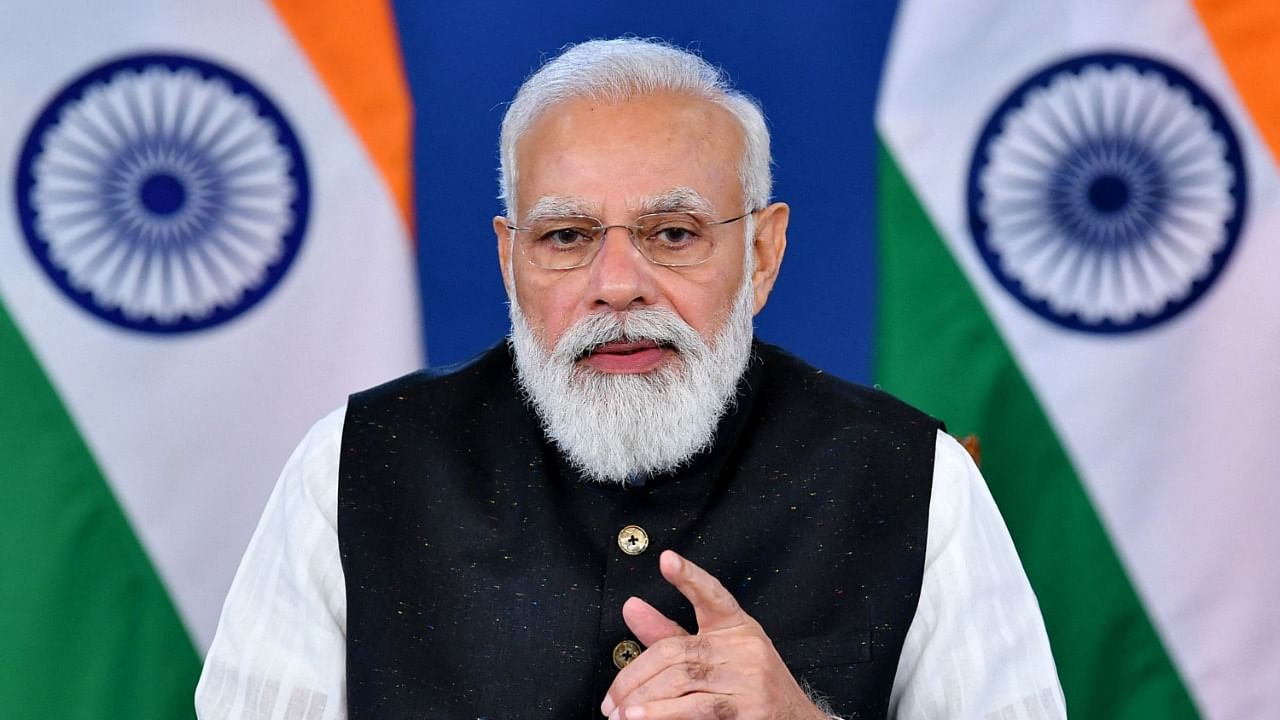
India on Tuesday stressed on “a unified international response” to the Taliban’s return to power in Afghanistan, subtly conveying its unease over the meetings the officials of the United Kingdom and the United States recently had with the leaders of the militant organization.
New Delhi also stuck to its stand and underlined the need for ensuring an inclusive dispensation in Kabul, in order to prevent export of terror from the territory of Afghanistan.
Prime Minister Narendra Modi virtually participated in a G20 extraordinary summit on the situation in Afghanistan, where the Taliban on August 15 marched into the national capital after occupying many provinces in a swift blitz, taking advantage of the withdrawal of troops by the United States and its NATO allies. The summit was convened by Italian Prime Minister Mario Draghi, who holds the chair of the G20 this year.
Modi stressed the need for an inclusive government in Afghanistan, with adequate representation of women and minorities, in order to preserve the socio-economic gains the conflict-ravaged country made in the last 20 years and to check the spread of radical ideology.
The Taliban’s near-medieval rule in Afghanistan had come to its end in November 2001, after the United States had launched a military offensive in the country to eliminate the Al Qaeda and avenge the 9/11 terrorist attacks. The militant organisation however not only survived, but also regrouped with the help of Pakistan, negotiated a deal with the US, but continued its offensives and finally returned to power two months ago.
Notwithstanding calls from New Delhi and the majority of the international community, the Taliban - guided by the Inter-Services Intelligence (ISI) of Pakistan – on September 8 announced an interim government in Kabul, with hardly any representation of the ethnic communities other than the majority Pashtuns. The new dispensation also had no representation of women and the religious minorities of Afghanistan.
Modi had on September 17 called out the Taliban’s government in Afghanistan for its lack of inclusivity and urged the world community to tread cautiously on legitimizing or recognizing it.
The US officials recently had a meeting with the leaders of the Taliban in Doha, although President Joe Biden’s administration had assured New Delhi that it was far away from legitimizing or recognizing the government announced by the militant organization in Kabul. The diplomats of the UK too had a meeting with the functionaries of the Taliban’s government in Afghanistan.
The Prime Minister on Tuesday underlined that the international community would not be able to bring about the desired change in the situation in Afghanistan unless it forged a unified international response to the militant organization’s return to power.
Check out latest DH videos here
